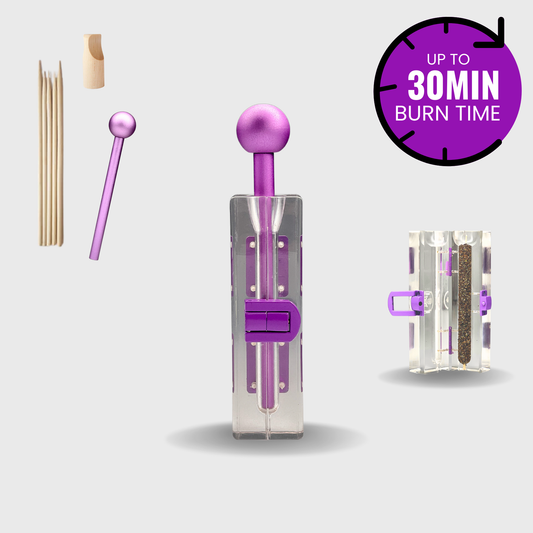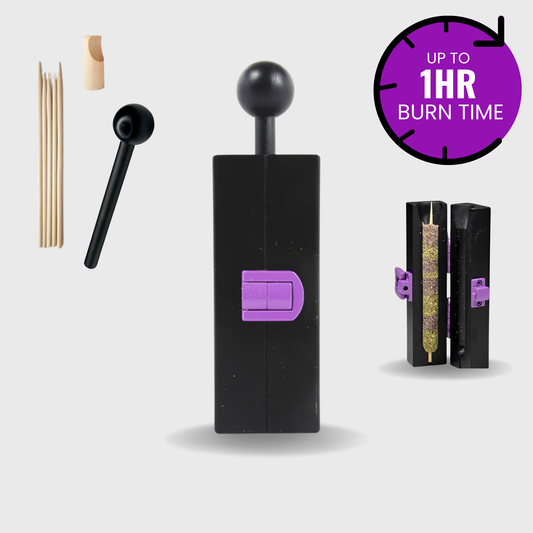⬇️ Prefer to listen instead? ⬇️
- Over half of patients said they're comfortable with doctors using medical marijuana outside of work.
- 53% of patients are open to physicians discussing marijuana as part of their treatment plan.
- Recreational cannabis use by doctors drew the strongest disapproval compared to alcohol or nicotine.
- A majority of patients in a conservative demographic believe cannabis and physicians can coexist professionally.
- Around 20% of patients remain uncertain about discussing cannabis or CBD with their doctor.
If your doctor lights up after hours, would it change how you feel about your next appointment? As cannabis continues its shift from subculture to wellness mainstay, new research suggests that patients are open — even welcoming — to the idea of doctors using marijuana outside of work. The talk about cannabis and doctors is changing. This is happening because laws are changing, people feel differently, and folks understand more about cannabis than just its “high” effect. The bigger question now: What does this say about trust, professionalism, and the future of medical marijuana use?
A Quick Pulse Check: What the Study Says
A study looked at how patients see substance use, including cannabis, by healthcare workers. The researchers surveyed 388 patients across outpatient orthopedic clinics in Pennsylvania. Notably, the demographic profile skewed older (average age 55) and predominantly white (over 95%), situated in a region better known for tradition than progressive reform.
Pennsylvania currently allows medical marijuana use but prohibits recreational cannabis. Within this context, the study becomes more revealing. Patients were directly asked how they'd feel about doctors who engage in alcohol consumption, nicotine use, or marijuana use during their personal time, outside work hours.
What they wanted to find out? They wanted to measure tolerance. Also, they wanted to see how much patients trust doctors who use cannabis. And they wanted to see how people's views differ for medical versus fun use. The results offered strong indications about where public sentiment is heading.

So, Are Patients Really Comfortable?
Perhaps surprisingly, a majority of respondents were either neutral or positive toward the idea of doctors using marijuana off the clock — particularly for medical reasons. Here’s the breakdown:
- 56% were comfortable with medical marijuana use by doctors.
- 45% felt fine with recreational marijuana use.
- 64% were okay with doctors drinking alcohol.
- 57% accepted nicotine use by physicians.
This comfort level with medical marijuana use crosses a symbolic threshold. It sits nearly equal with nicotine — a substance long entwined with public health debates — and isn’t far behind alcohol, a socially accepted yet physiologically harmful intoxicant.
That’s huge. For cannabis to rank that high in public opinion shows how far cannabis culture has come in destigmatizing medical marijuana use, even among traditionally skeptical populations.
Medical vs. Recreational: Why Context Matters
As the study illustrates, intent matters — especially when it comes to professionals like physicians. Patients were notably more accepting of cannabis use when it carried medical justification. This reflects a broader trend in society: people are more comfortable when cannabis use is framed with purpose — anxiety relief, pain reduction, sleep aid — rather than recreation or escapism.
Medical marijuana use among doctors isn't about getting high. It fits with the bigger wellness trend. This trend involves finding natural treatments and custom plans for health. In a world where burnout, chronic pain, and insomnia plague not just patients but healthcare providers themselves, cannabis offers a plant-based alternative grounded in growing research.
This distinction — medical over recreational — mirrors what we see in the marketplace too. Consumers are more informed today, seeking out chemical composition data like THC/CBD ratios, terpene profiles, and methods of consumption. Recreational stigmas are being replaced with purposeful rituals. That shift is helping legitimize the idea of cannabis and physicians sharing the same space responsibly.

The Trust Factor: Cannabis and Physicians
One of the most powerful insights from the study is that more than half of participants — 53% — were open to their doctor discussing marijuana as part of a medical plan. In fact, 40% said they would even consider using cannabis if their physician recommended it.
This hints at an important change: cannabis is entering the mainstream through the medical gateway. Trust in doctors is creating trust in the plant.
Doctors have long served as gatekeepers for therapeutic remedies — and this extends to cannabis. When a physician endorses or prescribes cannabis, it helps legitimize the plant, turning it from a social taboo to a clinically relevant solution. The fact that 55% of participants were also open to discussing CBD, a non-psychoactive cannabis extract, shows that the entry points for cannabis into mainstream wellness are expanding.
Doctors occupy a unique position in this reform. By being informed and transparent about cannabis use — both personally and professionally — they play a pivotal role in normalizing medical marijuana use for the public at large.

That Said... Stigma Still Lingers
Despite shifting views, around 20% of respondents were unsure about how they felt when it came to doctors using cannabis, especially discussing it as part of care. This uncertainty extended even to CBD, which lacks THC’s psychoactive properties and is legal in most jurisdictions.
Stigma around cannabis didn’t evaporate with legalization. Philosophical resistance, generational attitudes, and lingering media portrayals all contribute to doubt. Some individuals fear that cannabis use, even for medical purposes, may impair judgment, professionalism, or the moral authority of healthcare providers.
Ultimately, this suggests that cannabis reform is making strides — but still sits in transition. As evidence builds in support of therapeutic applications, public dialogues like this study are key to bridging the gap between outdated stigmas and modern clinical realities.

Comparing Cannabis to Alcohol and Nicotine
One of the study’s standout findings centers on disapproval — and recreational marijuana usage by doctors drew the highest levels of discomfort. Specifically:
- 25% of survey participants disagreed with doctors using recreational marijuana.
- 19% strongly disagreed — the highest opposition across all substances surveyed.
By contrast:
- 🍷 Only 13% expressed discomfort with doctors who drink alcohol occasionally.
- 🚬 16% had concerns with doctors who use nicotine.
Why does recreational cannabis draw sharper criticism than alcohol or tobacco — substances known to be more harmful in many cases? The answer, in part, lies in historical narratives. Cannabis has long been villainized in ways alcohol and nicotine were not — despite the ironies in health outcomes and social harms.
Alcohol impairs judgment and is deeply embedded in fatalities linked to liver damage, motor accidents, and violence. Nicotine kills over 480,000 Americans annually, according to the CDC. In contrast, cannabis, particularly when consumed carefully and in moderation, carries fewer acute health risks.
Still, society is only beginning to reconcile that evidence with our cultural assumptions. Until cannabis gains the same normalized treatment, perception gaps like the ones revealed in this study will likely persist.

What Doctors Do Off-the-Clock: Why Should We Care?
An undercurrent of this conversation involves privacy and professional autonomy. What a physician chooses to do after clinic hours — assuming they are not impaired at work — should arguably be treated no differently whether it’s a sip of wine, an elliptical workout, or a puff of cannabis.
Unfortunately, cannabis use remains under higher scrutiny. For doctors who live in states with legalized medical marijuana, the professional risk and social judgment associated with personal cannabis use remains disproportionately high — especially if there's no confidentiality protection.
Yet the benefits of cannabis are real. Healthcare professionals often face stress, burnout, musculoskeletal injuries from long hours, or sleeplessness. Many turn to medications with side effects. Should cannabis — a natural, largely non-lethal alternative — be considered unethical when alcohol is widely accepted?
As long as there's no on-the-job impairment, public discourse must adapt. Doctors deserve the same freedom to pursue wellness practices that other professions enjoy.

Normalizing Cannabis, One Professional at a Time
In many ways, the best way to normalize cannabis? Show responsible users — starting with physicians.
Doctors who openly incorporate medical marijuana into their wellness strategies, while maintaining professionalism and performance, send a powerful message: cannabis use does not equate to incompetence. It affirms that educated cannabis consumption can coexist with clinical excellence and ethical patient care.
Cannabis is no longer just an underground leisure activity. It is becoming a more refined cultural practice. It's much like how people think about fine wine or craft coffee. Brands like Purple Rose Supply focus on making that experience better. Products like cannagars (cannabis cigars) and hand-rolled gems reflect not a sloppy habit but an intentional ritual.
This cultural reinvention aligns with how today’s physicians are using cannabis — mindfully, therapeutically, and discreetly.
The Culture Is Getting Smarter
Across the board, cannabis use in 2024 is more informed, more nuanced, and more individualized. People who use cannabis are taking their time now. They are making strains work best for them. And they are trying different ways to use it, like edibles, oils, or dry herb vaporizers. Most important, they care about how they experience cannabis.
This movement is not just about what you consume, but how you approach it. Tools like Purple Rose Supply’s CannaMold help users curate long-burning, high-quality cannabis experiences. For healthcare professionals who value precision and intention in everything they do, this smart, elegant way to consume sends the right message.
Cannabis and doctors are not against each other. They are changing together.

Policy and Legalization: What This Study Could Spark
The ripple effects of research like this extend beyond patient perception — they have major implications for policy and healthcare regulation.
Today, no universal standard exists regarding doctors using medical marijuana outside of work hours. Many hospitals, boards, and credentialing systems define professionalism narrowly, often excluding cannabis users. But what happens when public trust tells a different story?
Study insights can empower advocacy groups, legal teams, and lawmakers to reevaluate outdated policies. If over half of patients are okay with off-hour cannabis use by doctors, it’s time to let that guide real workplace protections and normalization efforts.
Reimagining cannabis through a medically responsible lens — especially for doctors — could help integrate policies that prioritize safety without reflexively punishing nontraditional wellness choices.

Local Study, National Takeaway
It’s worth emphasizing the kind of audience this study surveyed: rural Pennsylvanians, largely white, mostly older. Not exactly the stereotype of a “green-forward” demographic. Yet even here — in this conservative setting — the numbers show a majority embrace medical marijuana use by doctors.
That opens the door for a wider shift. If this demographic is already warming up to cannabis-using physicians, imagine what public sentiment may look like in more progressive or urban communities. The takeaway is plain: the national attitude toward cannabis and professionalism is changing — and fast.
Rolling Forward: What This Means for Trust and Culture
Ultimately, the conclusion is both radical and refreshingly simple: patients care more about results than rituals. As long as their health care providers stay informed, effective, and responsible, cannabis use shouldn’t automatically undermine trust.
Doctors, like their patients, are looking for tools to combat insomnia, anxiety, and chronic stress. If marijuana delivers those benefits without compromising performance, the case for acceptance grows stronger.
Cannabis isn't about zoning out anymore — it's about tuning in. Whether you're a patient or a provider, it’s about choosing intentional wellness. Maybe it’s time to ask less about whether cannabis use is acceptable — and more about whether it’s informed, responsible, and beneficial.
Purple Rose Supply is already rolling that future forward.




